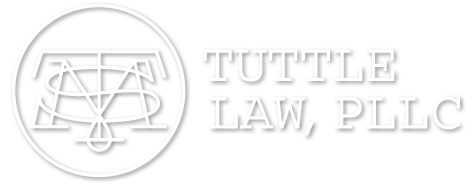“Governance shortcomings sometimes arise not because the organization lacks sound policies and procedures, but rather because it lacks an enforcer to make sure they are communicated, understood and followed – even at the cost of some personal embarrassment, discomfort, or disfavor with those in charge.”
The above quote, from Good Counsel: Meeting the Legal Needs of Nonprofits by Lesley Rosenthal, was written with lawyers in mind, asserting that independent and effective counsel is important to good corporate governance of nonprofits. Many nonprofits, however, do not have general counsel or lawyers on their boards who will act as watchdogs, ensuring that corporate bylaws and policies, as well as applicable statutes, are followed. But lawyers are not essential to a board’s following good procedures; any board member may act as an enforcer. Indeed, it is each board member’s obligation to do so. Lacking legal counsel does not excuse directors from engaging in good governance practices.
Nonprofit board members are fiduciaries, owing several duties to their organizations – the duty of care, the duty of loyalty and the duty of obedience – all while acting in good faith. The duty of due care requires the director to take the care and exercise the judgment that a reasonably prudent person would use when making decisions. Directors must be informed, ask questions, participate in deliberations, and exercise judgment. Key words to describe a board member who is acting with due care include attentive, diligent, thoughtful, active, informed, and participating.
Directors meet their duty of loyalty by acting in the best interests of the organization. They work to advance the organization’s interests and not their own private interests. They recognize conflicts of interest and deal with them openly and appropriately. The duty of obedience requires that the directors adhere to the organization’s mission, articles of incorporation, bylaws, and applicable laws, rules and regulations. All directors should have copies of their organization’s mission statement, articles and bylaws. They should be well acquainted with their contents. Without such knowledge, it can only be by happenstance that compliance is achieved.
All too often, a board will take on as a project the updating of its organization’s bylaws, and then put the bylaws away in the drawer to be neither consulted nor followed. The board may believe that it has done a good job because it has updated its bylaws – it has checked the box for having performed a governance review. This, however, is insufficient. The bylaws are the board’s road map for how it is to govern itself and the organization. They provide no direction or instruction if they remain in the glove compartment.
The nonprofit’s bylaws set forth many items that boards must consider and adhere to on an ongoing basis, such as requirements for calling, holding and giving notice of meetings, quorum and vote requirements, elections, officers, committees, term limits, and acting outside of meetings. Without knowing, understanding and following the bylaws, directors may be unaware that committees have been improperly formed and hence are without authority to act, or an executive director has been hired without the approval of the board of directors, or a meeting was not properly called or noticed and therefore any action taken at the meeting may be invalid, or too few directors were present at a meeting to take action, or an action taken by majority vote by email does not constitute valid board action. I have seen boards in these types of situations and others without any awareness that there were problems with proceeding.
I have acted as the enforcer, which is welcomed by most boards but, unfortunately, not all. As a corporate lawyer, the role of enforcer comes easily to me. I may play the role as outside counsel or as a board member. Where the enforcer is welcome and listened to, policies and procedures are followed or reevaluated or both. Boards at which an enforcer is not welcome, however, have serious governance work to do. One or more members of those boards must step up, be involved and diligent, and work to ensure that its organization’s policies and procedures are understood and followed. That stepping up is inherent in the director’s fiduciary duties. If the enforcing director’s efforts are ignored, the director may wish to consider resigning from the board of directors.
A director who is truly fulfilling his or her fiduciary obligations to the organization will necessarily become the enforcer mentioned in the above quote, ensuring that the organization’s policies and procedures are followed. A thoughtful, diligent, and informed director who is attentive to the nonprofit’s policies and procedures and who puts the interests of the nonprofit ahead of his or her own will provide untold value to the organization. If all directors are acting with due care, in good faith and in the best interests of the organization, and in accordance with the organization’s governing documents, no one director need suffer embarrassment, discomfort, or disfavor with fellow directors or others when speaking up to ensure compliance.
— Melanie S. Tuttle

Leave a Reply